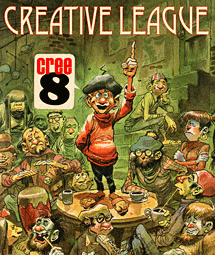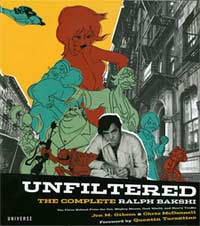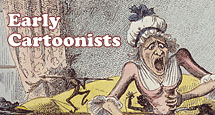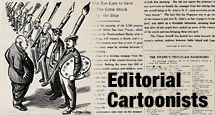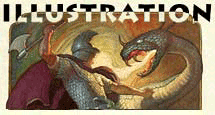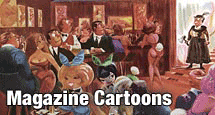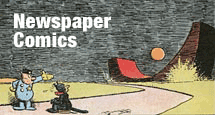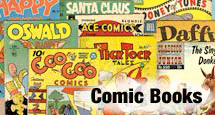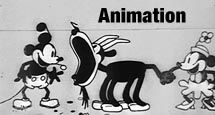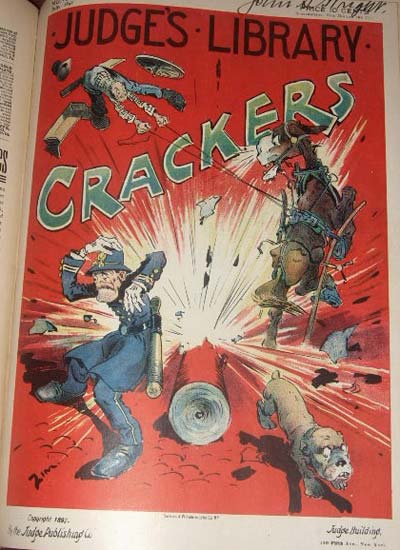
All ethnic groups were fair game for caricature in Judge magazine in the 1880s- even white people. "Crackers" referred to the type of boastful "rube" or "hick" who might be found congregating around the cracker barrel at the general store.
ZIM BOOK NEARING COMPLETION
The Animation Resources volunteers and I have been cranking for the past few months on cleaning up and formatting the over 650 pages in Zim’s Correspondence School of Cartooning, Comic Art and Caricature. This is the granddaddy of all cartooning courses, written by the man who was a pioneer in the art of the humorous caricature. I’ve been in touch with the Horseheads Historical Society, the group that operates ZIM’s home as a museum, and have received some valuable biographical information from them for the upcoming book. At this point, the entire cartooning course spans two large hardback volumes. We may release it as four smaller paperbacks or PDF files in the future.
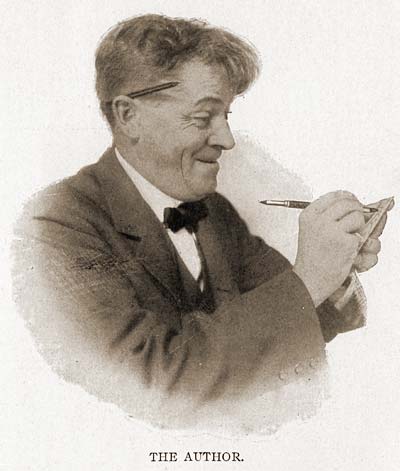
For more on the genius of Eugene "ZIM" Zimmerman, see our Online Exhibit on ZIM.
RALPH LENDS A HAND
Ralph Bakshi has been assembling a collection of ZIMiana for four decades. His collection includes original art, magazine illustrations and books by ZIM. Ralph has agreed to write the forward for our republication of the ZIM course. When he heard that I was looking for examples of ZIM’s watercolor work for the covers and frontispieces, Ralph dug into his collection and came up with some wonderful treasures… enough for another volume of ZIM’s cartooning to follow the cartooning course.
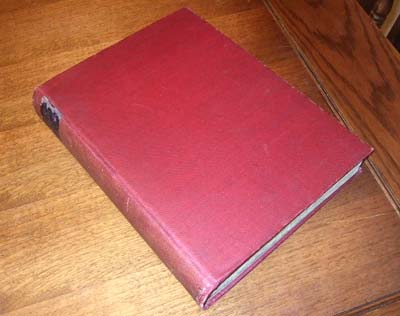
But that wasn’t all… Ralph heard that there was a bound volume of Judge magazines from 1885-1887 for sale at eBay. During this time period, ZIM was the leading cartoonist at Judge, and he was producing the best work of his lifetime. Animation Resources doesn’t have an acquisition budget, so we couldn’t afford to purchase the book. But Ralph felt that we needed it to do ZIM justice, so he dug into his own pocket to make sure we got it.
The book hasn’t arrived yet, but check out these photos from the seller…
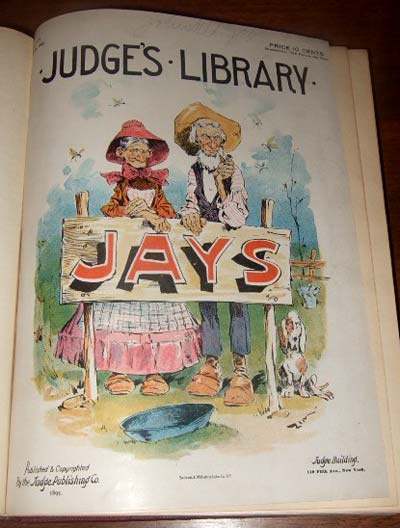
Judge was the National Lampoon or Mad magazine of its day. Each issue was devoted to making fun of a particular subject. This issue deals with "Jays", a slang term for oblivious and reckless people. The stereotypical "jay" was the ignorant rural farmer who came to the big city and ignored all traffic and safety laws. The term "Jay" is the root of our slang term "jaywalker".
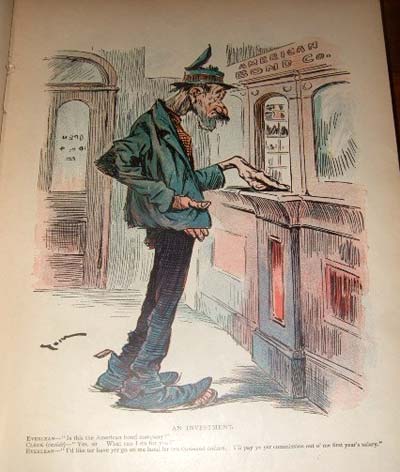
Here, a hobo tries to get a bank to invest in him… ZIM was the first cartoonist to apply the principles of caricature to the whole body, not just the head. Every part of this character, from the hat down to the shoes, exemplifies the type of personality ZIM was trying to convey.
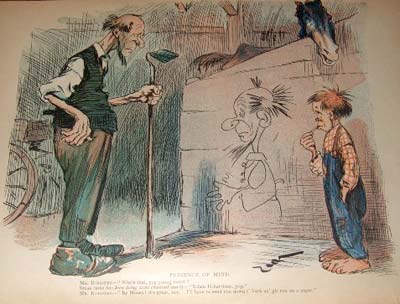
In his boyhood, ZIM worked as a farmhand. The placement of the signature and the familiar profile (see the photo above) indicate that this gag may have been autobiographical. The caption reads…
Mr Rodgers: Who’s that, my young man?
Silas (nervously): B-ben H-harrison, pop.
Mr Rodgers: By Moses! It’s great boy. I’ll have to send ya down to N’ York an’ git ye on a paper.
At the time this was published, Benjamin Harrison was the Republican candidate for President of the United States.
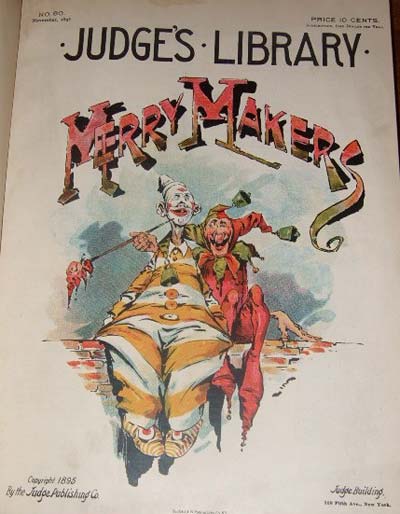
Check out the strange shapes and contrasts in this drawing! Bizzare.
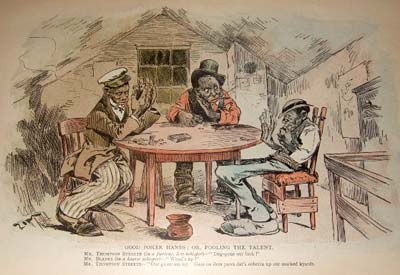
ZIM is largely known today for the racial stereotypes that were the stock-in-trade at Judge and Puck magazines at the time. But although the racial humor may now seem too abstract to translate into today’s world; the caricatures are well-observed and honest. They were undoubtedly based on real people ZIM knew.
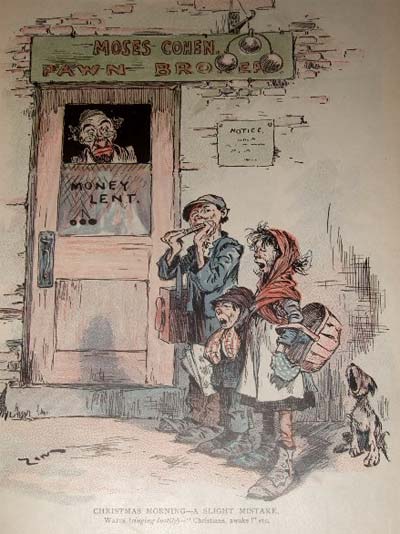
New York City was a melting pot in the late 19th century. Just about everyone was an immigrant. The cartoonists of the day found humor in the juxtapositions of culture one experienced walking through the poorer neighborhoods of the big city. ZIM was no exception. He was an immigrant himself. He arrived in America as a child speaking no English, and quickly adapted to life in a totally new world. His aspiration was to become an American through and through.
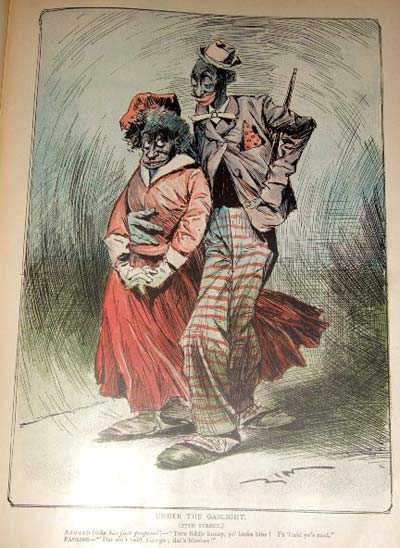
Wow, what a drawing! This one really resonates with me. We’re looking at two people who were probably born as slaves not only making the transition to becoming a part of society, but depicted as American citizens- note the American flag pants. When I look at this drawing, I can tell how they walk, their personality and temperament… everything. This is as perfect an example of caricature as I have ever seen. Absolutely brilliant.
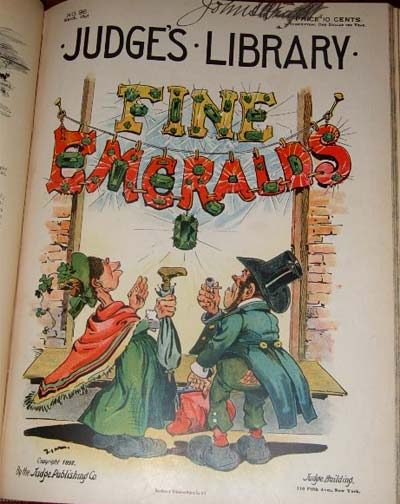
The Irish are lampooned in this issue.
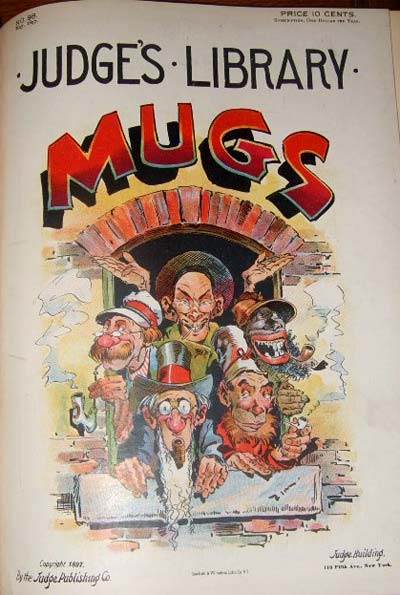
Here we see a dormer window in a tenement building populated by the faces of all the types of people who made up New York City…
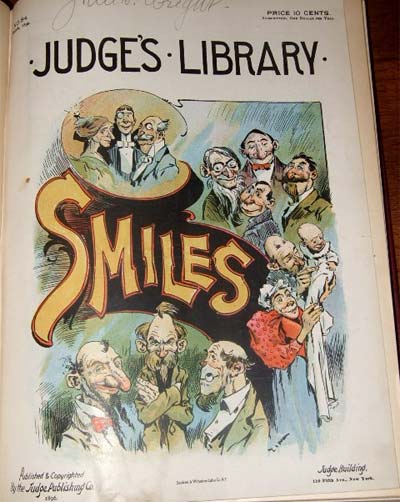
…and here is the common denominator between all of the types of faces in the world- the smile.
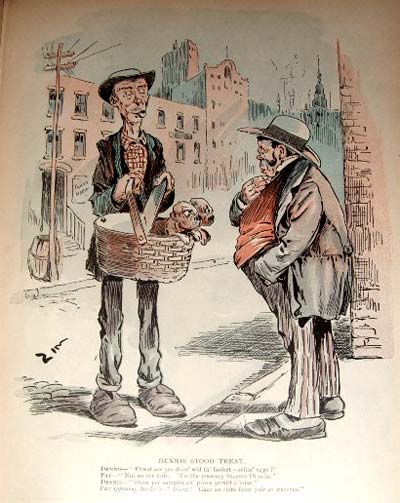
ZIM’s eye took in all the details of urban life in the 1880s. He definitely exhibited more of an affinity for the poor immigrants than he did the established well-to-do. This set him apart from most of the othe
r illustrators who drew for Puck, Judge and Life.
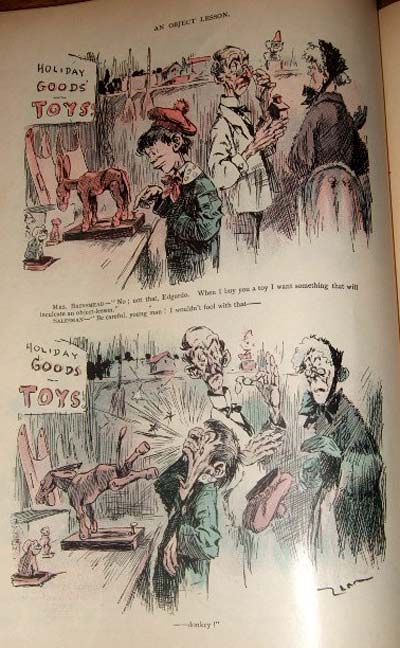
Can you see a little bit of Don Martin in this comic? The amazing thing about it is that this comic was drawn when Outcault’s The Yellow Kid was just getting its start. A. B. Frost had just pioneered sequential "time stop" drawings in his book Stuff and Nonsense a few years before. T. S. Sullivant hadn’t even begun his career as a cartoonist yet!
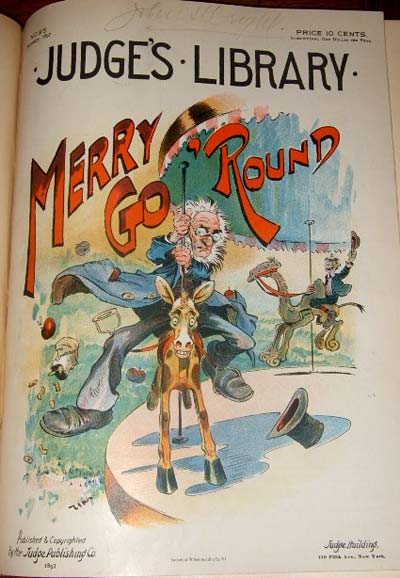
When I saw these images, I was blown away. It’s very difficult for me to wrap my head around the fact that these drawings are 120 years old! Before I discovered the genius of ZIM, I had no idea that the art of cartooning was this advanced in the 1880s. That’s why I’m so pleased to be able to bring this material to you.
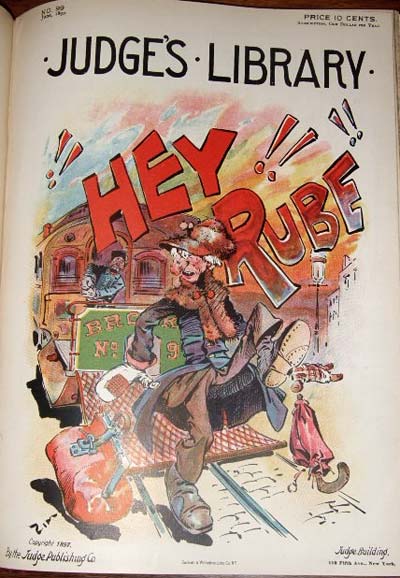
I hope you will support Animation Resources by buying a copy of ZIM’s Correspondence School of Cartooning, Comic Art and Caricature when it comes out.
But that’s not all! Check out these amazing covers by James Montgomery Flagg!
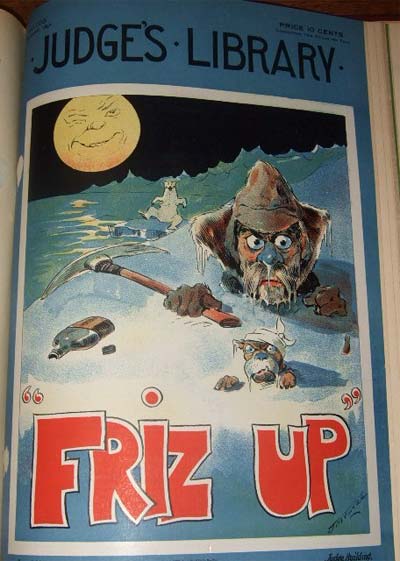
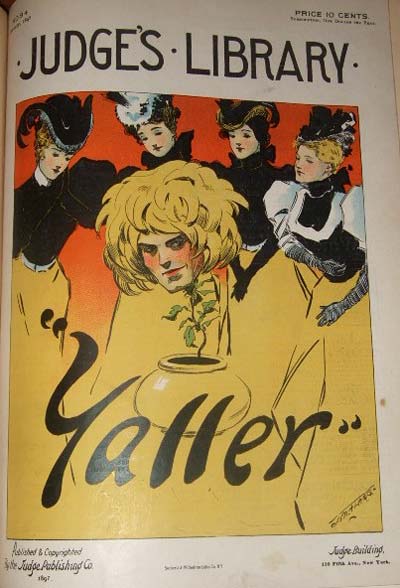
And how about this cover by Gillam…
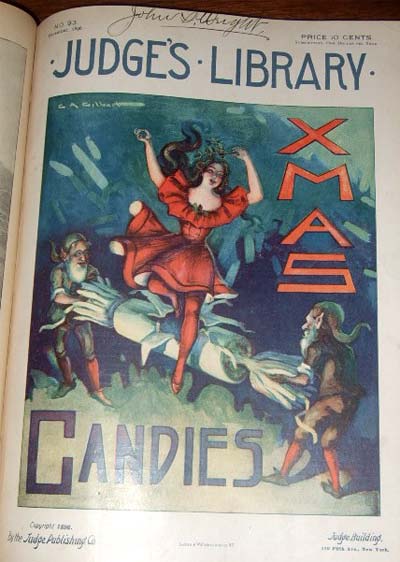
Whenever I speak to people interested in the history of cartooning, I find that they have pretty much the same frame of reference as I have… the earliest cartoonists they know about are Sullivant, Outcault and Herriman. A few know a little bit about the most powerful cartoonist who ever lived, Thomas Nast. I’m now discovering that there is a rich history of cartooning between Nast and Sullivant. As I discover more about this exciting period, I’ll share it with you here on the Animation Resources blog.
Many thanks to Ralph Bakshi for making this possible. Make sure to bookmark The Bakshi Blog.
Stephen Worth
Director
Animation Resources
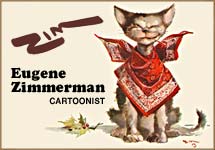

This posting is part of a series of articles comprising an online exhibit devoted to Eugene “Zim” Zimmerman.









 by
by 





